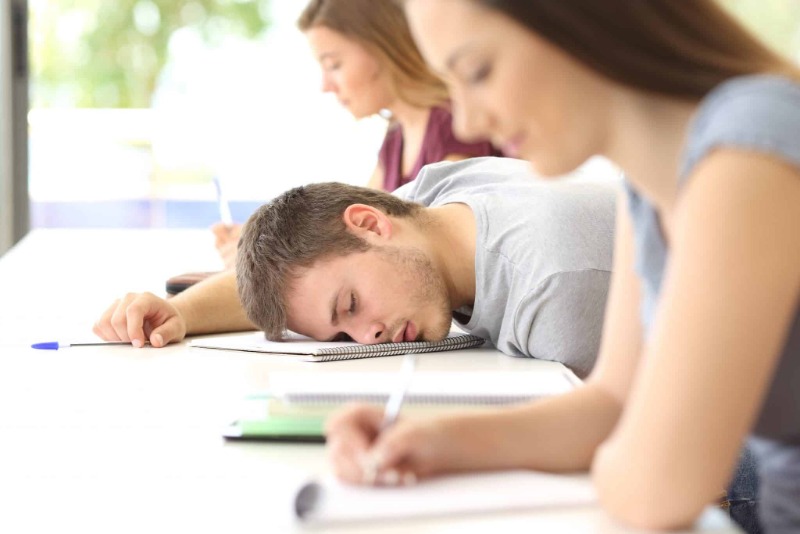From the Desk of Dr. Halley: Tired Teens
Tired Teens
Why is your teen so exhausted?
Tweens and teens are known for wanting to stay up late and sleep in even later. Puberty changes a teen’s internal clock, delaying the time he or she begins to feel sleepy and awakens. Everyone has their own internal clock influencing body temperature, appetite, and sleep cycle. According to experts, most teens need between eight and ten hours of sleep per night (sometimes even more) to achieve their best daytime alertness. Few teens actually get that much sleep regularly due to part-time jobs, early-morning practices, homework, extracurricular activities, socializing and screen time. Too little sleep can lead to difficulties staying awake in class, mood swings, and drowsy driving.
If getting around in the morning is a struggle at your house, here a few ways you can help reset that internal clock and allow him or her get a better night’s sleep.
-
Stick to a schedule of weekday and weekend bedtimes and wake times within two hours of each other. If your student has a job, limit working hours to 16-20 hours per week.
-
No long naps. More than a 30-minute nap after school can make it hard to fall asleep later.
-
Curb the caffeine after lunch and try to put a halt to energy drinks.
-
Adjust the lighting. If your teen uses a phone or other device near bedtime, tell him or her to turn down the brightness and hold it away from the face to reduce the risk of sleep disruption. Bright light in the morning will cue your teen’s system to wake up.
Sometimes there’s a bigger problem. Excessive daytime sleepiness can also be a sign of depression, a side effect of medication, or a physical issue such as obstructive sleep apnea where the throat muscles fall slack during sleep. If your best efforts still leave you concerned about your student’s sleep habits, contact your family doctor for proper treatment. Making sure your teen is well-rested is a major contribution to his or her success at school and safety on the road.


%20(2).png)
.png)
%20(1300%20%c3%97%20732%20px).png)
%20(1).png)


.png)
.png)



.png)

